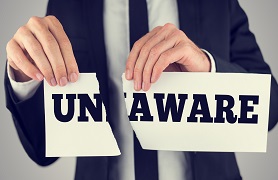Practice Areas
Attorneys
Perils of Passivity
U.S. Supreme Court Holds “Passive” Fraud Excepted from Discharge Under Bankruptcy Code
 “Take care in choosing your romantic and business partners” is the moral of the story from the U.S. Supreme Court’s recent ruling in Barternwerfer v. Buckley. The Bankruptcy Code provides the “honest but unfortunate” debtor an opportunity for a fresh start free of the claims of credit by discharging their obligations. Not all debts, however, are subject to discharge. Section 523(a)(2)(A) of the Code precludes discharge of debts for money obtained by fraud. But what if the unfortunate debtor’s liability for fraud is purely “passive,” meaning imposed by law for the acts of a business partner or an agent? These were the facts facing the Supreme Court in Bartwenwerfer.
“Take care in choosing your romantic and business partners” is the moral of the story from the U.S. Supreme Court’s recent ruling in Barternwerfer v. Buckley. The Bankruptcy Code provides the “honest but unfortunate” debtor an opportunity for a fresh start free of the claims of credit by discharging their obligations. Not all debts, however, are subject to discharge. Section 523(a)(2)(A) of the Code precludes discharge of debts for money obtained by fraud. But what if the unfortunate debtor’s liability for fraud is purely “passive,” meaning imposed by law for the acts of a business partner or an agent? These were the facts facing the Supreme Court in Bartwenwerfer.
In 2005, Karen Bartenwerfer and her then boyfriend (later spouse) David Bartenwerfer jointly purchased a house in San Francisco to renovate and flip. David managed the project. Karen played no significant role. After the house was sold to Kieran Buckley, he discovered a host of problems, such as a leaky roof, defective windows, a missing fire escape and permit deficiencies. Buckley sued the Bartenwerfers, claiming David intentionally failed to disclose these material facts. Buckley prevailed and the Bartenwerfers, unable to pay the $200,000 judgment, filed for bankruptcy protection. Karen’s liability for the underlying fraud judgment, however, was based solely on David’s conduct, not her own. She sought to discharge her liability under the judgment. Unsurprisingly, Buckley objected.
The Supreme Court concluded that the plain language of Section 523(a)(2)(A) does not expressly limit the discharge exception to only “active” fraud committed by the debtor. The Court held that absence of such language limiting constitutes an express policy choice on Congress’s part to bar even “passive” fraud from discharge. Section 523(a)(2)(A) stands in marked contrast with other similar discharge exceptions, which require some culpable act on the part of the debtor. The Court recognized that its ruling would preclude arguably innocent parties from receiving discharge without any fraudulent intent of their own. However, the Court concluded that common law has long imposed liability on passive parties for fraudulent acts of others where the parties have a special relationship, such as in partnerships or other forms of employment or agency relationships. Accordingly, if Congress wished to limit the scope of the discharge exception, it needed to do so by express language to that effect. Therefore, unless and until Congress acts, creditors retain ample leverage to contest discharge with respect to fraud judgments, regardless of whether the debtor had actually participated in the fraud at issue.
Should you have any questions regarding the court ruling, please contact Mr. Sandretto.
___________________
Disclaimer:
The article in this publication has been prepared by Eastman & Smith Ltd. for informational purposes only and should not be considered legal advice. This information is not intended to create, and receipt of it does not constitute, an attorney/client relationship.
